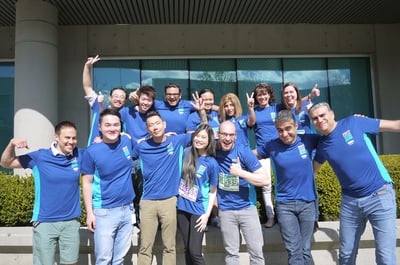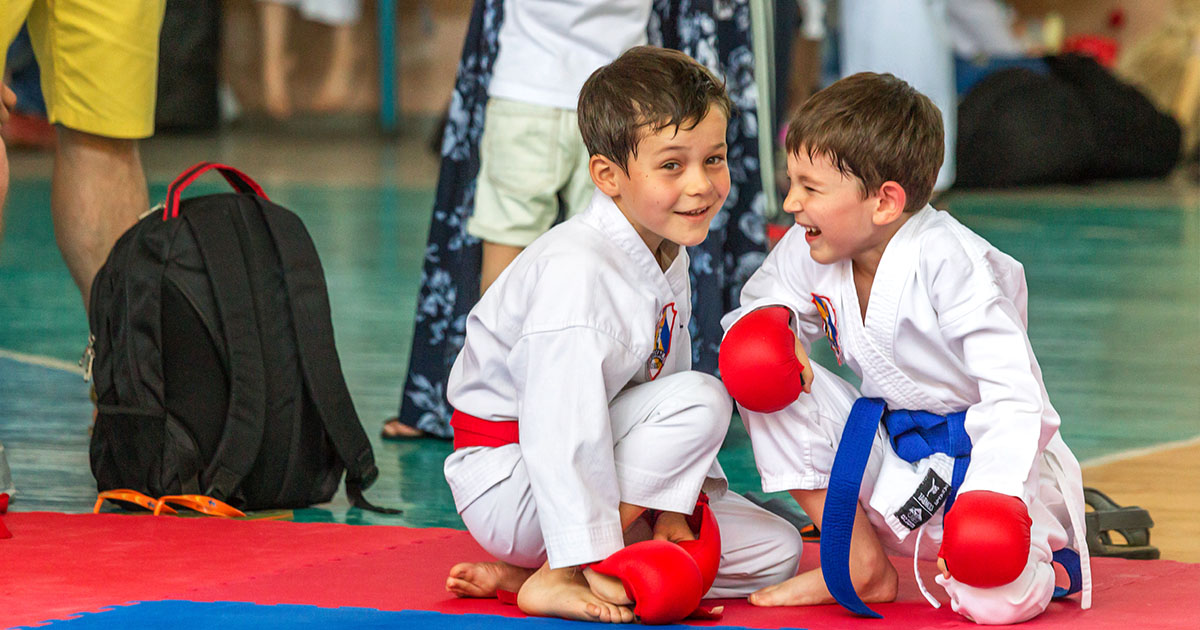Endurance Training for Long-Distance Running
Marathons are a very popular activity practiced around the world. A real test of physical and mental fortitude, the official distance of a marathon race sits at 26.2 miles (or 42.2 kilometers.) Half-marathons are half the distance of a full marathon and there are plenty of hybrid distance races, aimed at amateurs or seasoned professionals.
So what do you need to successfully run a marathon race? Cardiovascular fitness and musculoskeletal resilience are two of the major factors for whether someone can successfully finish a marathon race. Your musculoskeletal resilience refers to how quickly your muscles and bones can recover; as the race distance increases, your musculoskeletal resilience plays a bigger role. Here are some tips for gearing up for a marathon race.
Consult your Doctor
Running a marathon - let alone training for weeks for one - can push your body to its limits. Getting a medical check-up can help you avoid any serious harm to your body, as well as reduce the risk of injuries. Being outdoors and running is great for health and overall well-being but too much of a good thing can hurt you. It's a good idea to consult your doctor prior to starting your training, especially if you aren't already physically active on a daily basis.
Find your Base
Be honest with yourself and determine your base level. Building long-distance endurance looks very different for a seasoned athlete compared to a casual hiker. Defining your base will allow you to gradually increase your training so your body doesn't get overloaded. It's a long road from the couch to running a marathon and setting a good foundation is key in order to not burn out before the big race day. Start small and work your way up, whether it's in distance or difficulty.
Pick your Race
It might be tempting to try to hit a marathon race first but starting with a shorter distance race is a good idea for someone new to long distance running. There are many short runs and some marathons even have shorter length variations. If you have a specific marathon as your goal you may benefit greatly from utilizing other races as practice, especially for someone who may not be familiar with the experience of an official race.
The Xplor Recreation team picked Vancouver’s annual Sun Run to complete this year. With a mixed crew of experienced and first-time race runners, fourteen Xplor Recreationers came together and completed the 10km distance.

Tanya Zarin, Account Manager, is Xplor Recreation’s marathon superstar – less than a week prior to the Sun Run, Tanya ran the Boston Marathon, and is taking on the BMO Vancouver Marathon in early May. Even for a marathon veteran like Tanya, training at gradual increments in distance helps prepare for the race day.
The Long Road
A good training regimen is essential for building the endurance necessary to complete a long-distance race. You want one that pushes your body to gradually acclimate to the heavy workload while allowing your body to rest and avoid burnout. For first time runners, we recommend getting a training program from a reputable source. Everybody is different and you may need to tweak the regimen to make it work for you. Listening to your body is critical; don't force yourself to follow the training schedule when you're feeling sick or exhausted. You don't want to burn yourself out or risk an injury that will take you out of the race.
Race Day
First-time racers may feel weird with the pre-race day taper - reducing your run load to accumulate energy for the big race - but it's an essential part of race day preparations. Proper race day nutrition seems to be a very contentious topic; find a guide from a reputable source that works for you and your body. According to some studies, carb loading to raise muscle glycogen content can help give extra energy to your muscles and is a common practice that may work for you.
Hydration is also important, especially if the race is in warmer conditions. Determine what sports drink will be provided throughout the race, so you can incorporate them into your training regimen. Drinking 16 ounces of water two hours before race time will help keep your body hydrated and allow you to replenish this hydration level throughout the race. A proper sleep is also crucial but it's more important to maintain a high quality sleep schedule for the weeks leading up to the race than the night before.
It's easy to let the excitement of race day propel you to high speeds at the beginning of the race but keep in mind that it's a long race. Train well, prepare well, and let your confidence keep your race strategy in line. Your race day outfit should also be chosen strategically with the weather conditions in mind. Finally, here are some common marathon day mistakes from Runner's World, to keep you ahead of the game.
General Tips
Keeping a training log is vital for seeing patterns with your body and to see the effects of your nutrition, sleep, stress levels and more on your long distance running. Next, gradual increases are recommended, in order to reduce the risk of injury. Alternating difficult days with shorter runs or rest days helps allow your body to recover, reducing the risk of overtraining and burnout.
Many racers see benefits from cross-training with non-running activities, such as strength training, yoga, swimming, and cycling. At the end of the day, listening to your body will help keep you on the right path. Inspiration can also help many people, whether that's with mantras, following fitness advocates, or listening to your favorite music.
For more information, check out this sample training program for beginner marathon runners, to get you started.
What's the last long-distance race you ran in? Let us know on Facebook and follow us on Twitter and Google+, to stay up to date with all of your Xplor Recreation news.




